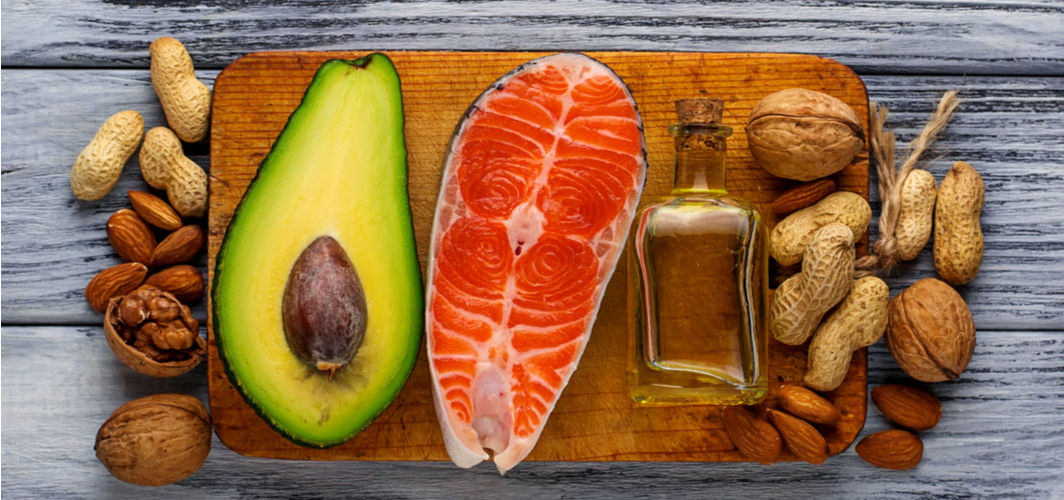Heart Conditions
Dietary Fats: What's Good for Your Heart?
6 min read
By Apollo 24/7, Published on - 19 November 2020, Updated on - 18 October 2022
Share this article
0
3 likes

Importance of dietary fats
- Fats are a source of energy
- Fats contain essential fatty acids that human bodies cannot produce on their own
- Fats are a component of cell walls
- Fats are needed to absorb fat-soluble vitamins: A, D, E, and K
- Fats protect organs and insulate bodies
-
Unhealthy fats
-
Saturated fats
-
Trans fats
-
Healthy fats
-
Monounsaturated fats
-
Polyunsaturated fats
Association between fat intake and body weight
What are the recommendations for fat intake?
- Saturated fat: less than 10%
- Trans fat: 0%
- Monounsaturated fat: 15% to 20%
- Polyunsaturated fat: 5% to 10%
- Cholesterol: not more than 300 mg
Tips for including fats in the diet
- Read the nutrition labels of packaged and processed foods carefully. Select foods that contain fewer saturated fats and no trans fats/partially hydrogenated fats.
- Select low-fat sources of protein such as dried beans, peas, tofu, egg whites, fish, and lean meats.
- Opt for foods that be cooked without added butter, gravy, or high-fat sauces. Avoid frying foods.
- Use oil instead of solid fats for cooking. Choose healthy cooking oils such as canola oil or olive oil.
- Sprinkle herbs, spices, and lemon juice on cooked vegetables instead of butter, cheese, or cream-based sauces.
- Reduce intake of ice cream, pastries, and cakes. Opt for healthy, low-sugar, and low-fat alternatives.
An important note
Heart Conditions
Leave Comment
Recommended for you

Heart Conditions
Can High BP in Middle Age Cause Brain Damage Later?
A new study has stated that having high blood pressure in the 40s and 50s can lead to significant damage to brain tissue in later life.

Heart Conditions
A Hole In The Heart? Know Its Causes, Symptoms & Treatment
Atrial septal defect (ASD) is a congenital heart condition that causes a hole between the heart's upper chambers, leading to increased blood flow and potential complications. This article discusses the types, symptoms, diagnosis, and treatment options for ASD, as well as preventive measures during pregnancy.

Heart Conditions
Night-time Blood Pressure: What Does It Reveal?
The findings of a recently published Japanese study have highlighted the negative impact of nighttime high blood pressure on cardiovascular health. Ambulatory blood pressure monitoring (ABPM) technique is used to calculate the nighttime blood pressure.
Subscribe
Sign up for our free Health Library Daily Newsletter
Get doctor-approved health tips, news, and more.
Visual Stories

Lower Your Cholesterol Naturally with These 7 Foods
Tap to continue exploring
Recommended for you

Heart Conditions
Can High BP in Middle Age Cause Brain Damage Later?
A new study has stated that having high blood pressure in the 40s and 50s can lead to significant damage to brain tissue in later life.

Heart Conditions
A Hole In The Heart? Know Its Causes, Symptoms & Treatment
Atrial septal defect (ASD) is a congenital heart condition that causes a hole between the heart's upper chambers, leading to increased blood flow and potential complications. This article discusses the types, symptoms, diagnosis, and treatment options for ASD, as well as preventive measures during pregnancy.

Heart Conditions
Night-time Blood Pressure: What Does It Reveal?
The findings of a recently published Japanese study have highlighted the negative impact of nighttime high blood pressure on cardiovascular health. Ambulatory blood pressure monitoring (ABPM) technique is used to calculate the nighttime blood pressure.